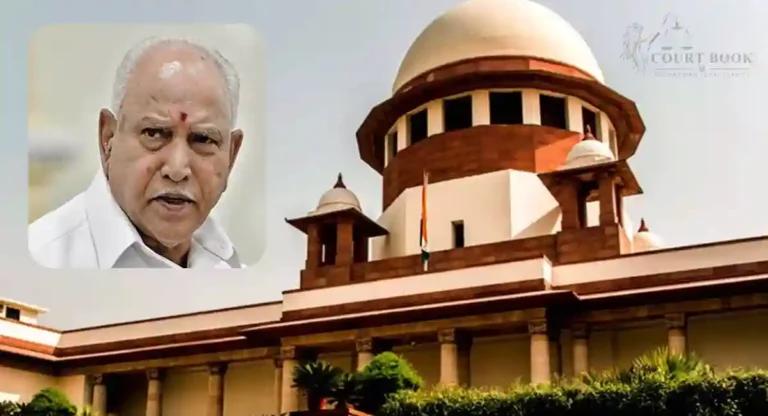In an important development, the Supreme Court on Monday decided not to rule on whether a sanction under Section 17A of the Prevention of Corruption Act is required when a Magistrate orders an investigation under Section 156(3) of the Criminal Procedure Code (CrPC). The Court stated that this issue is already part of a larger, pending reference.
The two-judge bench of Justice JB Pardiwala and Justice Manoj Misra said it would not pass a judgment as the question is already under review in another matter. The bench directed the case of former Karnataka Chief Minister BS Yediyurappa to be placed before the Chief Justice of India (CJI) to be heard along with the pending reference.
“As a matter of judicial discipline, the coordinate bench of this Court refrained from proceeding further and deciding the underlined issues... We deem it appropriate to tag these petitions to the referred matter Manju Surana v. Sunil Arora,”
— Supreme Court order dated April 16, 2024
Read Also:- Supreme Court Declines Petition Seeking Guidelines on Cryptocurrency Fraud, Cites Policy Domain
The bench had reserved judgment on April 10 after several hearings. However, while drafting the verdict, they found that another bench in April 2024 had also held off on deciding the same legal question.
Senior Advocate Siddharth Luthra, representing Yediyurappa, admitted during the hearing that his side failed to inform the Court about the ongoing reference.
“The reference to the CJI is only on the grounds of judicial propriety,”
— Justice Manoj Misra (oral observation)
The Court had earlier framed the following critical legal questions:
- What should the government or authority consider under Section 17A before allowing an inquiry or investigation?
- Are these considerations significantly different from what a Magistrate considers under Section 156(3) CrPC?
- Can the police start an inquiry under Magistrate orders without prior sanction under Section 17A?
Read Also:- Supreme Court Launches Updated Case Classification System from April 2025
Additionally, the bench examined the implications of Section 19 of the PC Act, especially its First Proviso. It raised questions about whether proceedings under Sections 200, 202, and 203 of CrPC can proceed without sanction, and how cognizance is taken.
Another key question was whether Section 17A and the amended Section 19 have retrospective effect, which could impact earlier investigations and cases.
Case Details: B.S YEDDIYURAPPA v. A ALAM PASHA & ORS.|Special Leave to Appeal (Crl.) No.520/2021















